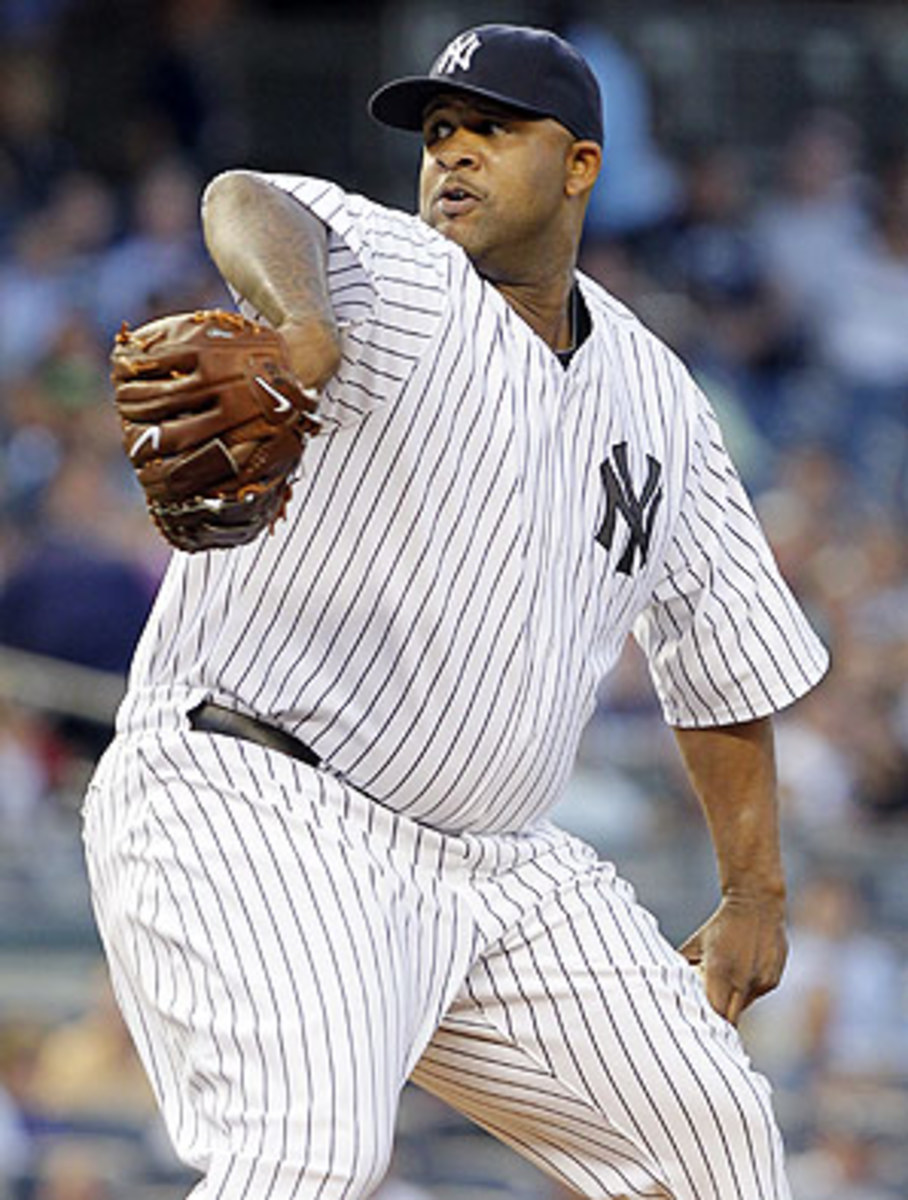
Sabathia smart to use opt-out but expect him back in pinstripes
CC Sabathia has until midnight on Monday to invoke the opt-out clause in the seven-year, $161-million contract he signed three years ago, which would make him a free agent. Sabathia has frequently said that he would not invoke the clause, that he loves pitching for the Yankees and loves being in New York. While the latter two things may well be true, Sabathia isn't necessarily making a decision between being a Yankee and the rest of his contract. In fact, Sabathia, who is currently weighing an offer from the Yankees to retain him before the opt-out creates a competitive market for the lefty's services, can have both.
What the opt-out provides is leverage. Right now, Sabathia has four more years and $92 million remaining on his contract, substantially below the market value of a pitcher who has been both effective and durable for his entire career. Last winter, Cliff Lee signed a five-year, $125 million contract with the Phillies, and probably left money on the table to do so. Johan Santana, four offseasons ago, signed a six-year, $137 million contract extension with the Mets. The gap between the $92 million that Sabathia is guaranteed under his current deal and the amount he would be guaranteed in a new contract is at least $50 million and could be $75 million or more. If he just re-started his current contract, which seems the minimum in play, he would make $69 million just for exercising a contract clause. It's folly to assume what anyone else's utility curves are, but suffice to say that it's rare for anyone to leave that much money on the table.
Sabathia is aided by of the specific circumstances in which the Yankees find themselves. Their starting pitching made it through 2011 thanks to surprisingly good seasons by bottom-barrel free agents Bartolo Colon and Freddy Garcia. A.J. Burnett is signed, and Ivan Nova will be given every chance to repeat his strong rookie season. Manuel Banuelos will almost certainly have a role in next season's rotation. There's no No. 1 starter in that group, and there's none on the market, either. Were the Yankees to lose Sabathia, they would have no way to replace him. Their rotation without Sabathia is barely that of a contending team, must less a $200 million favorite. That's why the Yankees have been proactive in trying to retain Sabathia. C.J. Wilson, the next-best starter who will be a free-agent, doesn't replace an arm like that.
It's not Sabathia's arm that is in question, of course. In three seasons in New York, Sabathia took every start, throwing at least 230 innings every year, striking out at least 197 men each year -- jumping to 230 in 2011 -- and had a composite ERA of 3.18 while facing an AL East schedule in a good home park for hitters. He's delivered every dime of value. If he opts out, the effective three-year, $69 million contract he just completed will be one of the great free-agent deals in MLB history.
The question is about Sabathia's future; the last deal covered his age 28-34 seasons; a seven-year deal now would run through 37. Sabathia had thrown 1,600 innings when signed; now it's 2,300. The risk profile is different. Sabathia is, to some extent, unique; there have been taller pitchers, and there have been heavier pitchers, but at 6-feet-7 and 290 pounds, he is the largest pitcher in baseball history. Sabermetric studies have shown that size is a positive for pitchers -- larger pitchers do not age poorly. It doesn't take much effort to cite examples of big pitchers who were effective in their late thirties, from David Wells back through Rick Reuschel and beyond. Sabathia isn't Wells, though, and he isn't Reuschel, and it's fair to wonder whether a man of his size can sustain his incredible durability, whether his knees and back can hold up as he pushes through his fourth decade.
If Sabathia opts out, there will be no shortage of teams willing to take the risk. The Red Sox, whose season fell apart for lack of pitching depth, would have to be interested. (The Yankees no doubt know this, adding to their desire to keep Sabathia off the market.) The Cubs, under new boss Theo Epstein, have some money to spend. The Rangers, having fallen just short of a World Series crown, may decide that a true No. 1 starter is the missing piece, and no team has a greater gap between its current payroll and what it can spend than Texas.
Then there's the team you don't see coming -- the Phillies with Cliff Lee, the Nationals with Jayson Werth, the Rockies with Mike Hampton. Plenty of teams will be lined up to pay Sabathia to step to the front of their rotations, and that competition could push his price into the stratosphere. Seven years and $175 million? Eight years and $200 million? No pitcher has gotten an eight-year deal since Hampton signed with Colorado in 2000, a point that will no doubt come up as the rumored offers for Sabathia get higher and higher.
Despite the Yankees' attempt over the weekend to make this all go away, look for Sabathia to invoke the clause and test the market. He doesn't have much to lose; he can find out what the market will pay him, and after that process, have considerable confidence that the Yankees will match or exceed the best offer. His importance to this team at this point -- Sabathia is not just the only No. 1 or No. 2 pitcher on staff; he is, at 31 next year, one of its younger contributors -- means that his confidence is not misplaced. Sabathia will opt out, but make his way back to pinstripes on a seven-year, $182-million contract with vesting options for additional years.





